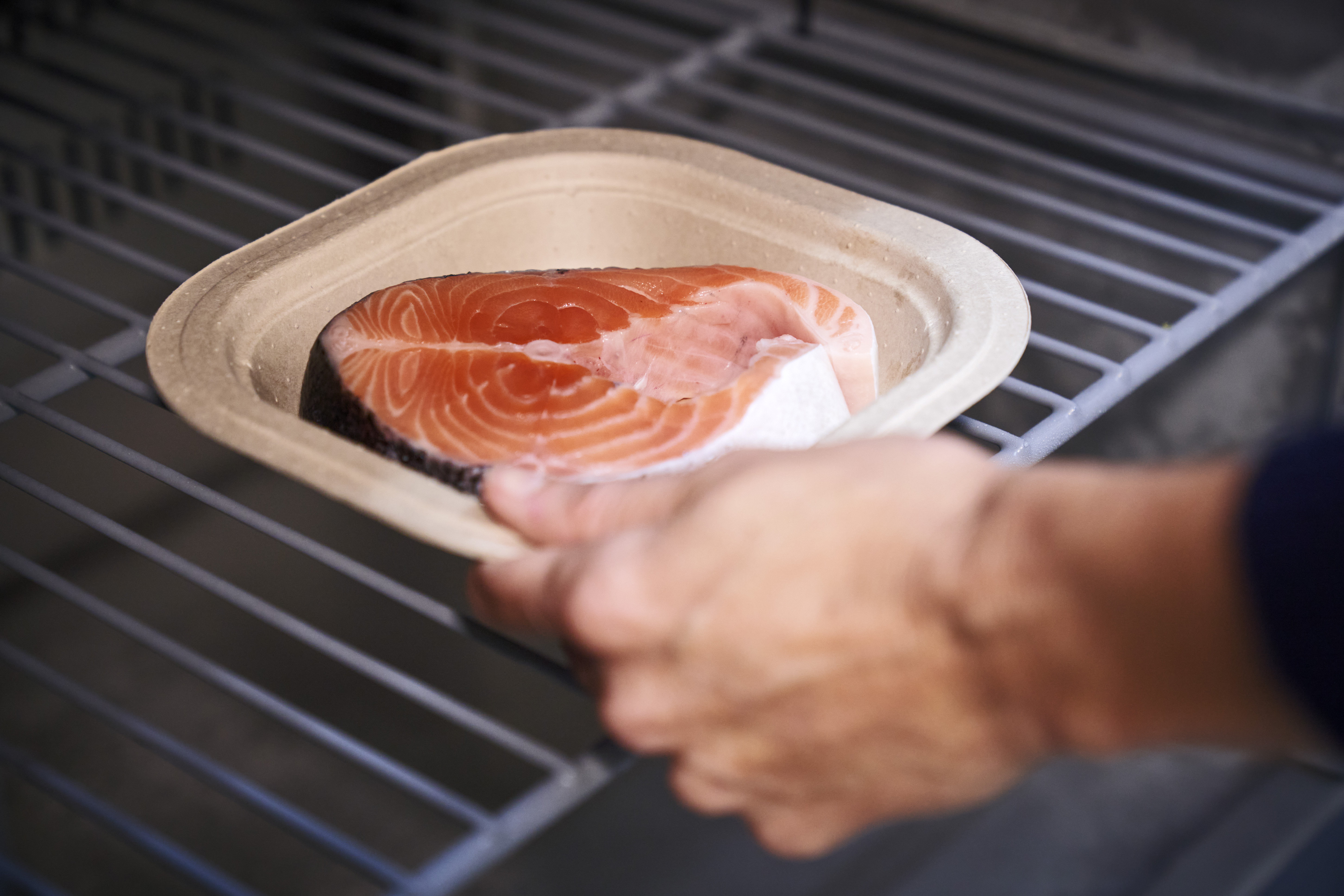- Innovation. It is an innovative product capable of replacing plastic packaging in the food sector by offering sustainable solutions such as trays for fresh products and ready meals.
- Production capacity. The company expects to reach a production capacity of 40 million containers in 2026, with the possibility of expanding it in the future.
Ence, a leader in sustainable cellulose production and renewable energy, has developed an innovative range of renewable packaging made from molded cellulose. These containers are designed to replace plastic in the food sector, offering sustainable solutions such as trays for fresh produce and ready meals.
The company plans to start production and commercialization of these containers this fiscal year 2025 and expects to reach a production capacity of 40 million containers in 2026, with the possibility of scaling it up in the future. The estimated investment for the first phase is 12 million euros.
This innovation is a decisive step by the company towards the replacement of plastic packaging in the food sector, offering consumers sustainable alternatives that respond to the current demands of the market and society.
Product of proximity
Based on a research process, Ence has materialized its efforts in the development of sustainable packaging from molded fiber, designed to replace plastic products used in food and distribution. These new containers, such as trays for fresh and prepared products, not only reduce the use of plastic, but also reduce the environmental impact by being compostable and recyclable, in line with the principles of circular economy and responsible consumption.
Ence’s commitment to innovation and sustainable development reflects its vision of the future. By promoting products that offer real solutions to today’s challenges, the company not only improves its competitiveness, but also contributes significantly to the reduction of plastic waste and is committed to a product of proximity, reducing its carbon footprint.
Specialty cellulose
Ence is making steady progress in its transformation as a manufacturer of specialty pulp. In the first quarter of 2025, special products accounted for 35% of the company’s total pulp sales.
In this sense, its weight is expected to continue to increase to over 60% of the total in 2028, with the incorporation of the 125,000 tons of the first fluff line that will start up in the fourth quarter of this year at the Navia biofactory for the absorbent hygiene products industry in Europe, which are currently imported from North America.
Among other advantages, this project will reduce the carbon footprint of the final products by using natural, renewable, biodegradable and compostable fibers of local origin.

